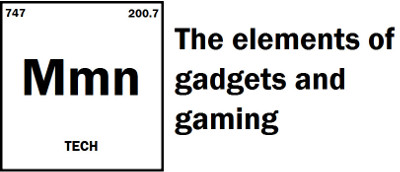

Micro-transactions and the problem with catering to the Chinese
Over the past two decades, China has become an economic power house thanks to its rising middle class. For western companies, this has meant a fresh, new, and lucrative, market for mass media entertainment. Video games are of course no exception, and it seems that catering to the Chinese is having a profound impact on the industry. Not all of it good.
An intriguing article came across my desk this morning from CNBC, talking about the rise of micro-transactions and pay-to-win mechanics. It points out that while the practice has largely been shunned by gamers in the west, it’s actually the norm in China.
When you think about it, this actually makes a lot of sense. The Chinese Communist Party has long restricted access to video game consoles in the country. However, most people in the large urban areas do have smartphones. Thus making them the primary device that people consume content.
Meanwhile, rampant software piracy fosters the free-to-play model. If people are just going to steal the game anyway, might as well not charge for it to begin with. It’s a lot harder to hack in-game marketplaces than it is to just download a game off the multitude or pirated APK sites. As such, micro-transactions are the primary source of revenue over there, and it seems the Chinese love them.
CNBC also points out that Asian gamers outside of Japan are used to paying reoccurring costs due to the popularity of net cafes and subscription based MMOs. Things that never really became large cultural phenomenons here in the west. Thus making the micro-transaction model more acceptable in those countries.
One thing they don’t point out is that an awful lot of Chinese gamers frigging love to cheat, as anyone who’s accidentally wandered into one of their servers can attest to. So being able to pay-to-win, in a country where that’s quite literally the way of life in general, is an obvious match made in heaven. And they’ll keep paying as long as their wealth gives them the advantage on the play field. It’s one of those wonderful relics of the post-Cultural Revolution era.
CNBC also fails to point out that a lot of wealthy Chinese are buying big stakes in the American and European entertainment industry. Which is resulting in a lot of things deemed acceptable in Eastern markets being forced on the global one. We’ve already seen this problem with film, but with huge conglomerates like Tencent getting big into gaming, it’s only a matter of time.
Thus it’s no surprise that big western publishers are jumping on the model like Michael Moore on a baked ham, looking to cash in before having their lunch eaten by those in the East. We’ve already heard terms like “turning players into payers” getting tossed around. As much as traditional gamers resist the encroach of micro-transactions into what Jim Stirling coined as “fee-to-pay” games, it seems like it’s going to keep coming like a tsunami.
The real question though is just how sustainable this is. Star Wars: Battlefront II encountered massive backlash after EA and DICE baked in pay-to-win mechanics so deeply into the game that the whole experience broke when these mechanics were removed. EA’s stock took a major pounding as sales plunged. Though other tiles, like Rock Star’s GTA: Online and Activision/Blizzard’s Overwatch, seem to be raking in the MT dough with little to no backlash. So it seems western gamers are either picking their battles, or don’t really care about micro-transactions as much as they claim to.
However, with putting them in full priced games, I do see people being less inclined to pay as time marches on. Especially as more and more titles do it, splitting peoples’ finite resources. Thus bringing us to a situation where publishers are fighting over piece of a shrinking pie.
Regardless of the outcome, it seems games are now being made for the Chinese market first. Westerners will just have to get used to the model, or start seriously supporting studios that shirk it.


